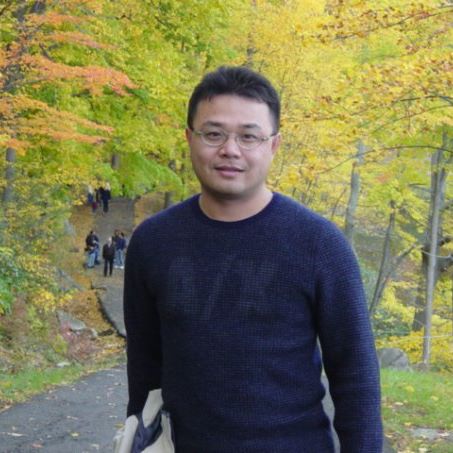Collateral damage - Foreign victims of China's hostage diplomacy

Last week, a bizarre story hit the headlines in East Asia. 14 months after Taiwanese academic Tsai Chin-shu went missing in China, Beijing finally admitted it had detained him on charges of endangering national security.
Just a week or so earlier, news broke that another Taiwanese citizen, Morrison Lee (pictured), had also been detained in China, also on national security charges. This time it took China three weeks to admit it was holding him.
Several weeks before that in August, Simon Cheng a Hong Kong citizen and an employee of the UK consulate in the territory went missing in China. It took almost two weeks for China to admit it had detained him. He was later released after serving 15 days Administrative Detention on what many say were dubious prostitution charges. At the time, Beijing stressed that since Cheng was from Hong Kong he was Chinese, and therefore it was an internal matter.
And last week, a US pilot working for FedEx, Todd Hohn, was detained in southern China for having non-metallic air gun pellets in his luggage. Hohn has since been released but is barred from leaving China until the investigation is completed. These people all have one thing in common.
Their countries, jurisdiction (in the case of Hong Kong), organization or company are locked in some kind of tensions with China.
- Beijing is keen to remove the democratically elected government of Tsai Ing-wen in Taiwan and has been punishing the country since her election in 2016;
- Hong Kong citizens have been engaged in months-long protests against the encroachment of freedoms by Beijing and the pro-Beijing local government;
- Beijing also repeatedly warned the UK government not to make supportive comments about the protest; and
- US courier firm FedEx is in hot water because it allegedly shipped a parcel of knives to Hong Kong, not to mention the trade tensions between the US and China.
It has gotten so bad that countries are beginning to warn their citizens not to travel to China for danger of being detained or denied passage of exit.
This post provides an update on some of the foriegners who have gone missing in China in the past few years. Many of these cases appear to be examples of CCP hostage diplomacy, a tactic Beijing has been increasingly keen to use.
Arbitrary and politically motivated arrests
Some detentions of foreigners appear to be arbitrary and politically motivated, aimed at threatening, warning or punishing the victim’s country, jurisdiction or employer. They have little to do with criminal justice. International norms of a right to a fair trial are ignored.
They are characterised by the following:
- Typically, as part of its power play, China waits weeks or even longer before admitting it’s detained someone;
- It is opaque about procedures and even details of the charge.
- In serious cases, victims are kept under a form of incommunicado detention, called Residential Surveillance at a Designated Location (RSDL), at a secret location where torture and mistreatment is common.
 A Safeguard Defenders publication, The People’s Republic of the Disappeared collected around a dozen first-person accounts of the horrors of RSDL. Even when the ordeal is ended (often after six months) and the victim is formally arrested, few are provided with effective legal counsel and they remain hidden in detention.
A Safeguard Defenders publication, The People’s Republic of the Disappeared collected around a dozen first-person accounts of the horrors of RSDL. Even when the ordeal is ended (often after six months) and the victim is formally arrested, few are provided with effective legal counsel and they remain hidden in detention.
Targeting foreigners is not a new phenomenon in China, but as the country becomes economically and politically stronger, such hostage diplomacy has been conducted at an accelerated rate. Here are just a handful of examples, organized by country.
Canada

The most blatant case of hostage diplomacy in recent years happened in December 2018, when Canada infuriated China by detaining Huawei CFO Meng Wanzhou following an extradition request from the United States. Within days, China retaliated by disappearing two Canadian citizens, former diplomat Michael Kovrig and businessman Michael Spavor, into RSDL; a move widely seen as a form of hostage diplomacy.
With Meng’s case still pending depsite intense pressure from Beijing, the two Michaels continue to be mistreated. Both have now been formally arrested on spying charges, but it appears neither has been able to see a lawyer or their family since they disappeared almost a year ago.
It didn’t stop there. In apparent anger at Canada’s continued refusal to release Meng, Beijing upped the jail sentence of Robert Schellenberg, a Canadian originally serving 15 years for drug smuggling to the death penalty, in a move widely seen as political, and in a procedure that has, according to lawyers in China, was unprecedented. A few months later, China sentenced another Canadian Fan Wei to death for manufacturing meth, also seen as a particularly harsh judgement.
Canada has more experience than other countries with CCP hostage diplomacy. Back in 2014, Canadian couple Julia and Kevin Garratt were both disappeared into RSDL. Like the two Michaels, neither had access to a lawyer, and were kept at secret locations. Their detention was linked to Canada’s detention of a Chinese national: Su Bin, a Chinese aviation entrepreneur, who the US accused of being a spy. He was later sentenced to four years in jail in the US in 2016 for stealing military secrets.
Two brothers, Chen Zhiheng and Chen Zhiyu, naturalized Canadian citizens, were detained in April 2018 and forced to confess on Chines state broadcaster CCTV to conspiring with exiled Chinese billionaire Guo Wenhui. Guo is one of China's most wanted men and Beijing has long been trying to force him to go back to Chna.
United States
 In June 2018, US citizens, brother and sister Victor and Cynthia Liu were banned from leaving China, while their mother Sandra Han, also a US citizen was detained, an apparent attempt to force their estranged father Liu Changming to go back to China to face fraud charges.
In June 2018, US citizens, brother and sister Victor and Cynthia Liu were banned from leaving China, while their mother Sandra Han, also a US citizen was detained, an apparent attempt to force their estranged father Liu Changming to go back to China to face fraud charges.
US citizen, Huang Wan, daughter-in-law to fallen security tsar Zhou Yongkang was disappeared into RSDL for 10 months in 2013. In June 2019, legally she was allowed to leave China this June, but like the Lius she has been prevented from leaving. In 2015, another American, Sandy Phan-Gillis, was disappeared and held at a secret location for half a year.
One of the earliest cases involved a US geologist Xue Feng. In 2007, he was disappeared in China for several years, tortured and then imprisoned for stealing secrets. He was finally released in 2015 and allowed to return home to the US.
Taiwan
 In addition to the cases of Tsai Chin-shu and Morrison Lee (Lee Meng-chu) in 2017, much publicized detention, disappearance, and later conviction and imprisonment of Taiwanese human rights defender Lee Ming-che in 2017.
In addition to the cases of Tsai Chin-shu and Morrison Lee (Lee Meng-chu) in 2017, much publicized detention, disappearance, and later conviction and imprisonment of Taiwanese human rights defender Lee Ming-che in 2017.
Some 67 Taiwanese have gone missing in China since 2016 (when the independence-leaning DPP party took power). With Tsai Chin-shu detained and kept incommunicado for over a year before China admitted to having taken, it begs the question of how many of those missing 67 have also been detained, and how many of those on political grounds.
Further, in 2019 Spain extradited 260 Taiwanese citizens to mainland China; several of whom have gone missing since. Their lawyers in Spain and families in Taiwan have been unable to reach them or been informed by the Chinese authorities what has happened to them.
Interestingly, in these politically-motivated cases, Taiwanese citizens are usually charged with endangering state security, while non-Taiwanese foreigners are accused of spying.
Japan
 Japan’s tense relationship with China reflecting their enduring geopolitical rivalry and territorial disputes can be seen in the number of its citizens arrested on the mainland. There are few details in the English-language press but some media have reported that nine Japanese citizens have been jailed or detained on spying charges since 2015. It is believed the number is far higher, but the Japanese government's silence on the matter, and the little exposure Japanese disappearances garner in media makes it difficult to have a fuller picture.
Japan’s tense relationship with China reflecting their enduring geopolitical rivalry and territorial disputes can be seen in the number of its citizens arrested on the mainland. There are few details in the English-language press but some media have reported that nine Japanese citizens have been jailed or detained on spying charges since 2015. It is believed the number is far higher, but the Japanese government's silence on the matter, and the little exposure Japanese disappearances garner in media makes it difficult to have a fuller picture.
Australia
 In January 2019, Australian writer Yang Hengjun disappeared in China. It later emerged he had been placed in RSDL and then later arrested on spying charges. New details have emerged that he has been prevented from seeing his lawyers and is shackled by his hands and feet for interrogations. He could face the death penalty.
In January 2019, Australian writer Yang Hengjun disappeared in China. It later emerged he had been placed in RSDL and then later arrested on spying charges. New details have emerged that he has been prevented from seeing his lawyers and is shackled by his hands and feet for interrogations. He could face the death penalty.
Yang, who now holds an Australian passport was a former Chinese diplomat and enraged Beijing with his pro-democracy writings. Since his detention, his wife, Yuan Xiaoliang, a Chinese national with permanent Australian residency, has been barred from leaving China,
China has been furious with Australia since 2017 for shelving an extradition treaty with Beijing. In 2018, it passed anti-foreign intervention law (widely seen as a response to Beijing’s worrying interference in Australian political affairs); banned Huawei from the country’s 5G infrastructure; and made efforts to counter Chinese expansion into the Pacific.
Australian employees of mining giant Rio Tinto and Casino operator in Crown Resorts in China have also been arrested in cases that were at least partially wrapped up in political motivations.
United Kingdom
 The UK may become the next target for China's hostage diplomacy if it makes any major move to criticize China over Hong Kong. The detention of Simon Cheng was a clear shot across the bow.
The UK may become the next target for China's hostage diplomacy if it makes any major move to criticize China over Hong Kong. The detention of Simon Cheng was a clear shot across the bow.
In 2015, Hong Kong resident (but UK passport holder) Lee Bo, was kidnapped by Chinese secret police in Hong Kong and disappeared into China. Lee disappeared along with four others who were involved with a publishing house that produced gossipy and politically sensitive books about China's top leaders.
One of the others, Swedish citizen Gui Minhai, was kidnapped from Thailand before being brought back to China.